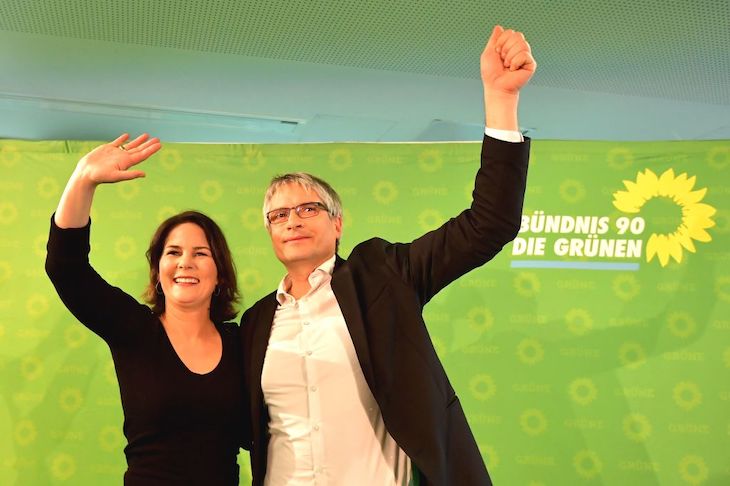As Brits understandably focus on Brexit and populism, another story is emerging: the green wave. It is especially focused in amongst the young and in cities: Greens took nine of Germany’s ten largest cities, sometimes by large margins. Across Germany, Die Grünen relegated the Social Democrats to third place. In France, Les Verts came from nowhere to finish third, greens came second in Finland and broke into double digits in Austria and The Netherlands. In Ireland, Greens trebled their share of the vote and won their first European Parliament seat for 20 years: an exit poll showed 90 per cent of voters thought the Irish government needs to do more on climate change. And it was a doubling of the Green vote that forced the Tories into a humiliating fifth place in the UK. The score in the European Parliament is that the Greens now have 70 seats, which is quite the upset, 20 more than had been expected.
So the Greens may end up kingmakers. In Strasbourg, other parties are this morning sidling up to them, paying their respects. Manfred Weber, the EPP’s candidate to replace Jean-Claude Juncker as president of the Commission, says that ‘the European Greens are also the winners of the day’. The rise of populists means ‘the Greens will be indispensable’ in creating a pro-European majority in Strasbourg, says Philippe Lamberts, a Belgian MEP.
Does this matter? Very much so. This is a Europe-wide trend, reflected in the UK. It challenges the idea of voters taking their allotted space in a left vs right, or even globalist vs nationalist spectrum. In recent years, we have seen this time and time again: the political class thinks the election is about one question, and a huge group of voters use it to answer another question.
We can also see a demographic split in this high-turnout election: cities vs towns – but also one in age. Amongst the under-25s, Les Verts in France came first with 22 per cent and Die Grünen came first with 34 per cent in Germany – three times as much as Merkel’s CDU. A reminder that, no matter what Britain’s ills, not everyone is obsessed with Brexit or populism. There’s a lot of green energy about, and its emergence is one the biggest stories in Europe this morning.







Comments